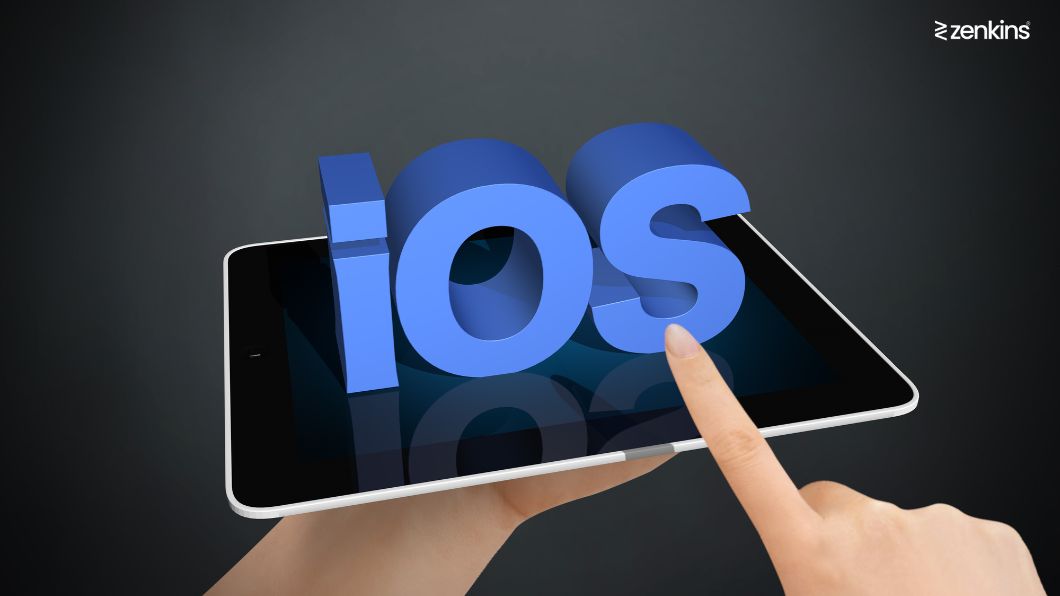.NET vs. Swift for iOS App Development
Table of Contents
Native app development for iOS is a vital aspect of creating powerful and engaging applications for Apple’s mobile platform. When it comes to choosing the right programming language for iOS app development, two popular options are .NET and Swift. While .NET provides a versatile and familiar framework, Swift offers a native and efficient language specifically designed for iOS. In this article, we will delve into the comparison between .NET and Swift for iOS app development, exploring their performance, development tools, user interface considerations, compatibility with iOS, community support, and more. By examining the strengths and weaknesses of both languages, you will gain a comprehensive understanding of which language best suits your iOS app development needs.
Introduction to Native App Development for iOS
Understanding Native App Development
So you want to dive into the world of iOS app development? Well, get ready to go native, my friend! Native app development refers to creating applications specifically for a particular platform – in this case, iOS. It involves using the platform’s programming language and development tools to build apps that seamlessly integrate with the operating system and take full advantage of its features.
Importance of iOS App Development
iOS, the operating system that powers Apple devices, is one of the most popular platforms in the world. With millions of active users and a thriving App Store, developing for iOS can offer immense opportunities for app creators. Whether you want to build the next viral game or a productivity app that changes lives, iOS app development can help you tap into a massive user base and potentially generate some serious revenue. Time to make that app idea a reality!
Overview of .NET and Swift Programming Languages
Introduction to .NET
Ah, .NET, the well-established programming framework developed by Microsoft. While originally known for its prowess in the Windows world, .NET has expanded its horizons and made its way into iOS app development. With the introduction of Xamarin, a cross-platform development tool, .NET enthusiasts can now harness the power of C# to build iOS apps. This means you can leverage your existing .NET skills and codebase to create native iOS experiences. Talk about killing two birds with one stone!
Introduction to Swift
Now let’s talk about Swift, Apple’s very own programming language. Introduced in 2014, Swift has quickly gained popularity among developers for its simplicity and modern features. It was designed specifically for iOS, macOS, watchOS, and tvOS app development, making it the go-to language for building native iOS apps. Swift’s syntax is clean and expressive, making it a joy to work with (well, as joyful as programming can be). Plus, with regular updates and improvements from Apple, Swift is constantly evolving to meet the demands of the ever-changing app landscape.
Comparing Performance and Efficiency: .NET vs. Swift
Evaluating Performance of .NET in iOS App Development
When it comes to performance, .NET on iOS can hold its own. Xamarin allows you to compile your .NET code into native machine code, which means your app can achieve similar performance levels as apps developed using Swift. Sure, there might be some slight performance differences, but unless you’re building a super complex app that requires every ounce of power, most users won’t notice the difference. So, worry not – your app won’t be left in the dust!
Assessing Efficiency of Swift in iOS App Development
Swift, being Apple’s preferred language for iOS development, is optimized to work seamlessly with the iOS ecosystem. It offers a smoother developer experience and leverages the full power of Apple’s frameworks and libraries. With Swift, you can take advantage of features like ARC (Automatic Reference Counting) and optionals, which help reduce memory management headaches. The language also boasts improved syntax and performance optimizations, making your development process more efficient. Plus, with a growing community of Swift developers, you’ll have plenty of resources and support at your fingertips.
Exploring Development Tools and Ecosystem: .NET vs. Swift
Tools for .NET Development in iOS
For .NET developers venturing into iOS app development, Xamarin comes to the rescue. Xamarin provides a set of tools, including Xamarin.Forms and Xamarin.iOS, that allow you to create cross-platform or platform-specific iOS apps using your existing .NET skills. You can even reuse code across Android and Windows platforms, saving you time and effort. With Xamarin, you’ll feel right at home in the iOS development world, thanks to the familiar .NET ecosystem.
Tools for Swift Development in iOS
If you’re diving into Swift development, Xcode is your holy grail. As Apple’s official integrated development environment (IDE), Xcode offers a robust set of tools for creating, debugging, and testing iOS apps. From designing user interfaces with Interface Builder to writing Swift code and running simulations on various devices, Xcode has got you covered. It even comes with built-in performance analysis tools to help you fine-tune your app for maximum efficiency. Get ready for a love-hate relationship with Xcode – the struggle will be real!
User Interface and Design Considerations: .NET vs. Swift
Designing UI with .NET for iOS Apps
When it comes to designing user interfaces (UI) for iOS apps using .NET, you have a variety of options at your disposal. With frameworks like Xamarin.Forms and Xamarin.iOS, you can create visually appealing and interactive UI elements that seamlessly integrate with the iOS platform. The UI design process in .NET involves leveraging XAML markup language and a robust set of UI controls to craft beautiful interfaces. Plus, with the flexibility of .NET, you can easily customize the look and feel of your app to match the iOS design guidelines.
Designing UI with Swift for iOS Apps
Designing UI with Swift for iOS apps is a delight for developers. With Apple’s own UI framework, SwiftUI, you can create stunning and intuitive interfaces using Swift code. SwiftUI allows you to build UI elements effortlessly by employing a declarative syntax. This means you can focus on what you want your UI to look like, and SwiftUI takes care of the rest. The framework provides powerful tools and features that enable you to create dynamic and responsive UI that seamlessly adapts to different iOS devices.
Compatibility and Integration with iOS: .NET vs. Swift
Assessing Compatibility of .NET with iOS
.NET has come a long way in terms of compatibility and integration with iOS. Xamarin, a cross-platform development framework, empowers developers to build native iOS apps using .NET. Xamarin allows you to write shared codebase in C# and utilize it across multiple platforms, including iOS. This compatibility ensures that you can leverage your existing .NET skills and libraries to create high-quality iOS apps.
Assessing Compatibility of Swift with iOS
Swift is the language native to iOS app development and, therefore, offers seamless compatibility with the iOS platform. Developed by Apple, Swift enjoys deep integration with iOS frameworks, making it easy to access native iOS functionalities and resources. This tight integration translates into optimal performance and a smooth development experience. Moreover, Swift’s interoperability with Objective-C allows you to seamlessly use existing Objective-C libraries in your Swift codebase.
Community Support and Learning Resources: .NET vs. Swift
Community Support for .NET iOS App Development
.NET enjoys a vast and supportive community of developers, making it easy to find help and resources when developing iOS apps with .NET. Online forums, developer communities, and dedicated platforms like Stack Overflow provide a wealth of knowledge and assistance. Additionally, Microsoft offers comprehensive documentation and tutorials to guide developers on their .NET iOS app development journey. With such strong community support, you’ll never be stranded when facing challenges or seeking advice.
Community Support for Swift iOS App Development
The Swift community is renowned for its enthusiasm and passion. From active forums and online communities to dedicated Swift conferences and meetups, there is no shortage of support and learning opportunities for Swift iOS app development. Apple provides extensive documentation, tutorials, and sample code to help developers get started with Swift. The community is also known for its open-source contributions, providing a plethora of libraries and frameworks that can accelerate your iOS app development.
Conclusion: Choosing the Right Language for iOS App Development
In the battle of .NET vs. Swift for iOS app development, both languages offer unique advantages. .NET provides a well-rounded development ecosystem with powerful tools like Xamarin, allowing you to leverage your existing .NET skills. On the other hand, Swift offers seamless integration with iOS, boosts productivity with SwiftUI, and benefits from a passionate developer community.
When choosing the right language, consider your existing skills, project requirements, and personal preferences. If you’re already proficient in .NET, exploring Xamarin for iOS app development might be a logical choice. If you’re starting fresh or prioritize native integration and a vibrant community, Swift could be the language for you. Ultimately, both languages enable you to create exceptional iOS apps, so embrace the one that resonates with your development style and aspirations.
So there you have it, a sneak peek into the exciting world of iOS app development. Whether you choose to go with .NET and Xamarin or embrace Swift and Xcode, remember to enjoy the journey, keep learning, and have fun building awesome apps that people can’t put down. Good luck, fellow developer!




